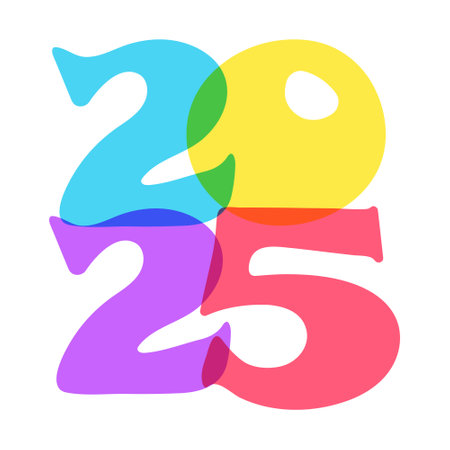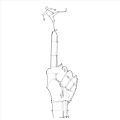Introduction to LGBTQ+ Relationships in Modern British Society
In recent years, the landscape of LGBTQ+ relationships in the United Kingdom has undergone a profound transformation. Once relegated to the fringes of society, same-sex and diverse gender relationships now occupy a far more visible and celebrated position within British culture. Social attitudes have shifted remarkably, with increasing numbers of Britons expressing support for marriage equality, inclusive family structures, and legal protections for all sexual orientations and gender identities. This evolution is reflected not only in policy and law but also in the everyday lives of people across England, Scotland, Wales, and Northern Ireland. From the bustling streets of London’s Soho to the vibrant communities of Manchester and Brighton, LGBTQ+ individuals are forging connections, building families, and contributing richly to the tapestry of modern British life. Yet, while acceptance has grown, challenges remain—particularly as individuals seek to understand themselves and their partners within this changing context. Against this backdrop, many are turning towards astrology as a means of gaining unique insights into their relationships. By exploring astrological compatibility through an LGBTQ+ lens, we can uncover fresh perspectives on love and partnership that resonate deeply with today’s diverse British community.
2. The Foundations of Astrological Compatibility
In the rich tapestry of British society, where diversity is celebrated and individual identities are honoured, astrological compatibility remains a valued guide for many seeking meaningful connections. Traditionally, astrology has served as a reflective tool for understanding relationships, drawing upon the unique energies represented by each zodiac sign. However, in our modern, inclusive British community, these principles have gracefully evolved to embrace all gender identities and sexual orientations.
At its core, astrological compatibility considers the elemental qualities (Fire, Earth, Air, Water), the modes (Cardinal, Fixed, Mutable), and planetary aspects between birth charts. Rather than focusing solely on binary gender roles or heteronormative pairings, today’s astrologers appreciate that every individual—regardless of how they identify or whom they love—carries a distinctive blend of celestial influences. In this way, astrology becomes not just a tool for romantic insight but also one for self-affirmation and mutual respect within LGBTQ+ relationships.
Key Components of Compatibility
| Astrological Factor | Traditional Role | Inclusive Application |
|---|---|---|
| Sun Sign | Core identity and ego expression | Highlights personal strengths regardless of gender or orientation |
| Moon Sign | Emotional needs and responses | Reveals emotional compatibility beyond traditional gender expectations |
| Venus & Mars | Love style and desire (traditionally “female” and “male” planets) | Represents attraction dynamics for all gender identities and relationships |
| Rising Sign | Outward persona and first impressions | Influences initial attraction and relationship dynamics without bias |
| Synthesised Chart Aspects | Chemistry between two charts (“synastry”) | Shows points of harmony or challenge unique to any pairing or constellation of partners |
A Broad Embrace for All Relationships
The art of interpreting astrological compatibility now reflects the beautifully varied landscape of contemporary Britain. Whether you are seeking guidance about a same-sex partnership in Brighton, navigating an open relationship in Manchester, or exploring your identity in Glasgow, astrology offers wisdom that transcends labels. By honouring both tradition and inclusivity, the stars invite everyone—regardless of background—to seek connection, understanding, and shared growth.

3. Astrological Sign Combinations in LGBTQ+ Contexts
Astrology has long served as a tool for understanding the intricate tapestry of human relationships. In the context of LGBTQ+ partnerships, zodiac compatibility reveals both nuanced strengths and subtle challenges unique to these modern British connections.
Unique Strengths in Queer Pairings
LGBTQ+ couples often find that traditional astrological pairings take on fresh layers of meaning within their relationships. For instance, a Gemini and Aquarius partnership, already renowned for its communicative brilliance, can flourish further in queer contexts where open dialogue and mutual respect are paramount. The adaptability of Mutable signs, such as Pisces or Virgo, may resonate deeply with those navigating evolving identities or unconventional relationship structures common within the British LGBTQ+ community.
Cultural Nuances and Emotional Resonance
British cultural values—such as understated affection, dry wit, and a spirit of resilience—intertwine elegantly with certain zodiac combinations. A Cancer and Taurus duo might find comfort in shared traditions and quiet nights in, reflecting the British penchant for cosy intimacy. Meanwhile, fire sign pairings like Aries and Leo can thrive amidst Britain’s vibrant urban scenes, embracing both individuality and collective celebration during events such as Pride or community gatherings.
Potential Challenges to Be Mindful Of
Yet, not all star-crossed connections sail smoothly. Fixed sign matches—say, two stubborn Scorpios—may encounter power struggles over boundaries or leadership roles. In a society that prizes politeness and compromise, learning to balance directness with sensitivity is vital. Furthermore, water and air sign couplings (like Cancer and Libra) might face hurdles when reconciling emotional depth with intellectual detachment, necessitating patience and empathy on both sides.
Ultimately, by interpreting astrological compatibility through a British LGBTQ+ lens, individuals gain empowering insights into how their celestial alignments can foster richer understanding, enduring partnership, and authentic self-expression within their relationships.
4. Navigating Cultural Nuances: The British Experience
The intersection of British cultural values, social norms, and astrology presents a unique landscape for LGBTQ+ relationships. The UK’s rich historical tapestry, shaped by centuries of tradition, monarchy, and evolving legal frameworks, influences how individuals approach both love and astrology. Traditionally, British society was reserved regarding open discussions of sexuality and alternative lifestyles; however, recent decades have seen remarkable progress towards inclusivity and acceptance within the LGBTQ+ community.
Historical Influences and Modern Progress
British attitudes toward LGBTQ+ relationships have shifted dramatically over time. From the era of criminalisation and secrecy to the current climate of legal recognition and Pride celebrations in cities like London, Manchester, and Brighton, each step has impacted how people perceive both their identities and their astrological destinies. Astrology itself was once considered an eccentric or even subversive interest; today, it is increasingly embraced as a tool for self-understanding and compatibility—especially among younger generations who value authenticity and self-expression.
Astrology Meets British Social Norms
Modern British culture places emphasis on politeness, privacy, and subtlety—values that can influence how LGBTQ+ individuals discuss personal matters such as romantic compatibility. Astrology offers a ‘safe’ language through which to explore identity and connection without breaching these unwritten codes. For instance, discussing one’s star sign over tea or at the pub provides an accessible entry point into deeper conversations about compatibility or attraction.
Key Cultural Considerations for LGBTQ+ Astrological Compatibility
| Aspect | Traditional Influence | Modern Development |
|---|---|---|
| Openness about Relationships | Discretion valued; same-sex relationships often hidden | Pride events widely celebrated; increasing public visibility |
| Social Gatherings | Conversations steered away from personal issues | Astrology as an icebreaker; more open discussions about identity |
| Family Expectations | Conservative values may influence partner choice | Younger generations challenge norms; focus on authentic connections |
| Attitudes Toward Astrology | Scepticism common; seen as niche or quirky | Mainstream appeal via media and social platforms; used for self-discovery |
This blending of history and modernity gives rise to a uniquely British approach to love and compatibility within the LGBTQ+ community—one that respects tradition while embracing change. Whether through quiet reflection or lively debate over horoscopes with friends, astrology serves as both a bridge to deeper understanding and a celebration of individuality in the ever-evolving British context.
5. Personal Growth, Identity, and the Stars
For many LGBTQ+ individuals living in the UK, the journey of self-discovery and acceptance can be both challenging and deeply rewarding. In this context, astrology offers a gentle guiding hand—providing language and structure to explore one’s identity, emotional needs, and patterns in relationships. By examining the birth chart, British LGBTQ+ people may find reassurance in the idea that their unique traits and desires are part of a grand cosmic design, rather than something to be hidden or suppressed.
Astrological insights can empower individuals to embrace their authentic selves. For example, understanding your Sun sign can illuminate your core personality, while your Moon sign may reveal your emotional world—helpful knowledge when navigating complex feelings about sexuality or gender identity. Venus and Mars placements often shed light on love languages and attraction styles, helping LGBTQ+ individuals communicate their needs more clearly within partnerships.
In a society that is increasingly open yet still grappling with prejudice, astrology acts as a non-judgemental mirror for personal growth. It encourages self-reflection without imposing rigid norms or expectations. For someone in London questioning their place within the community, or a young person in Manchester forging new romantic connections, astrological self-awareness can foster resilience and pride.
Moreover, astrology nurtures acceptance—not only of oneself but also of others’ differences. By appreciating the diverse ways that signs express affection or resolve conflict, couples can develop empathy and patience. This approach aligns with British values of respect and inclusivity, allowing LGBTQ+ relationships to flourish authentically.
Ultimately, by weaving together the wisdom of the stars with contemporary British LGBTQ+ experiences, astrology becomes not just a tool for compatibility but a means of cultivating deeper understanding and personal fulfilment on life’s journey.
6. Practical Tips and Ethical Considerations
Astrology, while a fascinating lens through which to explore LGBTQ+ relationships, must be approached with care, respect, and an understanding of the diverse experiences within the modern British community. Here are practical tips and ethical guidelines for weaving astrological insights into conversations about love and compatibility, ensuring inclusivity and cultural sensitivity at every step.
Grounding Astrology in Reality
While many find comfort or inspiration in star signs and planetary alignments, it is vital to remember that astrology is one perspective among many. In the context of LGBTQ+ relationships, avoid making sweeping assumptions based solely on birth charts. Instead, treat astrological compatibility as a starting point for open conversation rather than a fixed prediction of relationship success or failure.
Respecting Individuality and Diversity
The British LGBTQ+ community is wonderfully varied, encompassing countless identities, backgrounds, and stories. When discussing astrological insights, acknowledge each person’s uniqueness beyond their sun sign or natal chart. Refrain from stereotyping based on zodiac attributes; instead, invite individuals to reflect on how—or if—astrology resonates with their lived experience.
Ethical Communication and Consent
Always seek consent before delving into someone’s astrological chart or offering advice. Not everyone feels comfortable sharing personal details such as birth dates or discussing intimate topics like relationship dynamics through an astrological framework. Ensure your approach is gentle and your language affirming, particularly when navigating sensitive areas related to gender identity or sexual orientation.
Inclusivity in Astrological Language
Adopt inclusive language that honours all forms of partnership beyond heteronormative assumptions. Be mindful of pronouns and relationship structures when interpreting charts for same-sex couples or individuals who identify outside the binary. This fosters a space where everyone feels seen and respected within both astrological practice and wider relationship discussions.
Embracing Openness and Ongoing Learning
Astrology can offer unique insights but should never overshadow the voices and choices of those involved in a relationship. Encourage curiosity over dogma, supporting partners as they explore both celestial wisdom and their own evolving connection. In the modern British context—rich with diversity—such a balanced approach not only deepens understanding but also strengthens bonds built on mutual respect.

